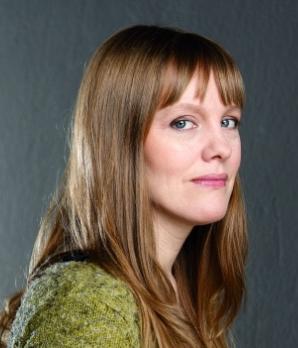-
Age33
-
SexFemale
-
EthnicityI am an American citizen, but I do not feel I have a strong ethnic identity.
-
ReligionCatholic, but no longer practice
-
Level of educationPhD student
-
Family status (children included)married, no children
-
Place of birth (town, state)Milwaukee, Wisconsin, USA
-
Now living in (town, state)Sofia, Bulgaria
- How would you define your identity? This is a hard question for me, because I think white middle-class Americans do not tend to think of themselves as having ethnic identities at all (there have been sociological studies on this phenomenon of "whiteness" as the "unmarked" ethnicity), while I personally do not identify really at all with my nationality. I would say my identity is most tied with my social beliefs and social class (liberal, left-leaning, progressive political and social attitudes), rather than with ethnicity, nationality or gender.
- Please put in hierarchical order your identities (sexual, confessional, national, professional, social, marital, etc.) Have this order changed in time and with your age, or in connection with some other circumstances? Have you noticed these changes yourself?
1) Social
2) professional
3) Sexual
4) confessional
5) national
Being raised Catholic I think this used to be a bigger part of my identity, but since I was 15 or so I have moved away from this. Now it is more like a distant "ethnic root," sort of like the myths about my German and English great-great-grandparents that are sort of interesting for the sake of nostalgia but which don't really play a role in how I perceive myself in everyday life. Social identity has always been the dominant one. Obviously, my professional identity has become more important as I have gotten older. - I would say my parents' social and political beliefs (they are also liberal and progressive-minded, which wasn't so typical for suburban Minnesota, especially Catholics!) were very fundamental in forming my identity. I pursued and even went further in this direction since I was a teenager, becoming a vegetarian, political activist, etc.
- I'm not sure what figures I identify with. As far as plots, I have always felt an affinity with Antigone, being the younger daughter and challenger of mainstream mores. I definitely see connections between my musical preferences and my identity; I am an ethnomusicologist, after all! : I grew up listening to punk rock, in large part because of the extreme anti-establishment nature of this music. I also listen to lots of folk music (Bulgarian, Irish, Indian, etc), also in part because it is an alternative to mainstream American mass-mediated culture. I also listened to a lot of rock and metal as kid, which, since it is so male-dominated, I think prevented me from developing a more feminist identity, which is strange given the leftist intellectual environment I have lived in for the past 15 years or so.
- Besides Antigone, I can't really think of any.
- I feel that like many middle-class white Americans I do not have a clear sense of identity, which is quite problematic, because often it would be much easier to be able to cling to a clear set of beliefs and guidelines, rather than having to struggle to continually make and remake a meaningful value system for oneself.
- The "differences" of language, belief, history, etc are not really a problem because I disn't necessarily come here with a strong sense of my own identity. Being in the Balkans, where ethnic, regional and religious identity are extremely important has made me realize how unclear my own identity is along those parameters. I think the clear sense of historicity and belongingness that many Bulgarians have is very much part of what attracts me to this place. Being a "foreigner" in a sense gives me a clear identity, something I don't have at home.
- I feel it is very positive, as it forces one to confront issue of values and meaningfulness that one does not necessarily notice in one's native environment.
- When translating or speaking my own language here in Bulgaria, because it forces me to try to express the ideas of another person and another culture through the prism of my own self.
- I feel I am in a rather strange situation here in Bulgaria, because I study Bulgarian folk singing very seriously (and have for almost 15 years) and it is an extremely important aspect of my life. However, I always feel like a bit of a fraud, like I am "stealing someone else's identity" when I sing this music, since Bulgarians tend to believe (and have told me in no uncertain terms on numerous occasions) that "you're good, but you'll never quite get it right because you are not Bulgarian," even though (to be completely immodest!) I sing this music better than many Bulgarians themselves. Thus, while I feel that Bulgarian folk music is a very important part of who I am, I also feel that I am not "allowed" to claim this identity due to the fact that I am not ethnically Bulgarian.
Note of the editor. More about the band Gologan in whish Angela Rodel is singing and playing tambura at Gologan. Also in Facebook
2007
